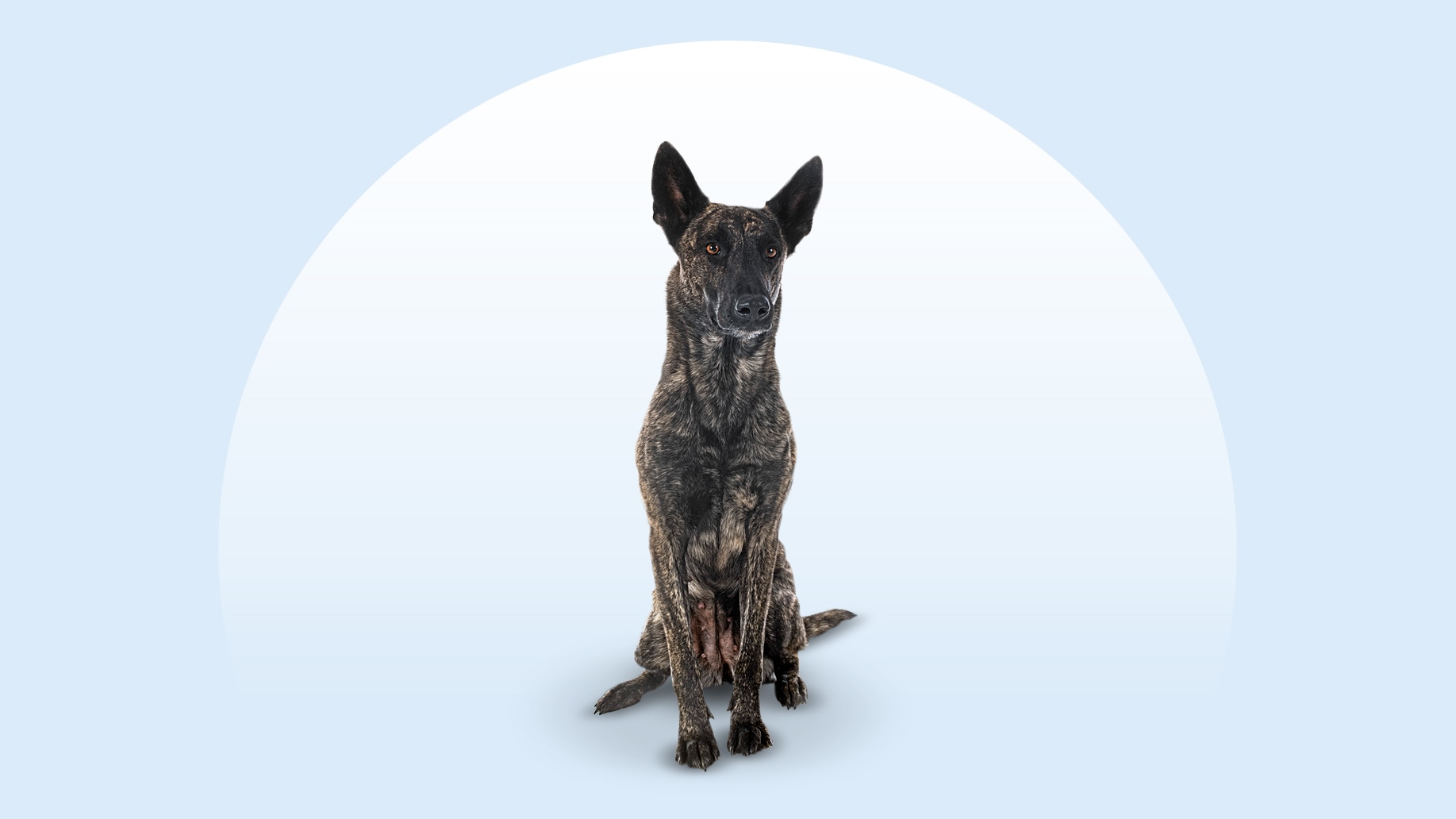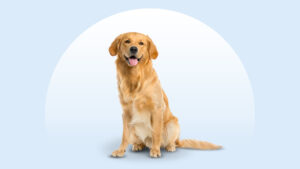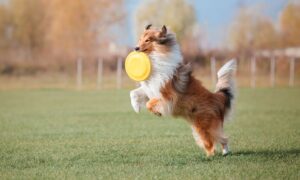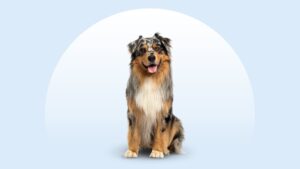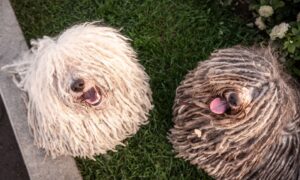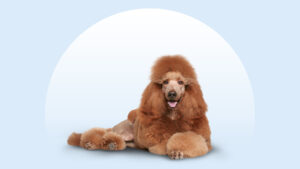Dutch Shepherd
Updated December 15, 2025
Dutch Shepherd
Updated December 15, 2025
Dutch Shepherds are versatile herding dogs who need ample exercise and mental stimulation to live their best lives. They thrive in active households and love adventure.
Clever, Exuberant, Independent
Male: 42-75 pounds
Female: 42-75 pounds
Male: 22.5-24.5 inches
Female: 21.5-23.5 inches
11 to 14 years
Gold Brindle, Silver Brindle
If James Bond were a dog, he might just be the Dutch Shepherd. This handsome, hard-working, quick-witted breed with military ties and loads of drive is always ready for action—minus the martini, of course. Make no mistake: The Dutch Shepherd, or Dutchie, isn’t interchangeable with their cousin the German Shepherd. With their brindle coats and propensity for the working life, these dogs are in a class all their own. Full of energy and ambition, they are ready and waiting to go on adventure with you today and every day. And when they’re off the clock, these playful, affectionate dogs adore their families and live to please.
Dutch Shepherd Characteristics
Dutch Shepherd Appearance
Dutch Shepherds have a lot in common with the German Shepherd, but don’t confuse the two—Dutchies have their own unique traits. Their gold or silver brindle coats can be short, long or rough over a woolly undercoat, and their muscular build, alert ears and watchful eyes can make them look like they’re reporting for K-9 duty with your local police squad. But they’re not all business—that wide smile will remind you they’re fun-loving furry friends at heart.
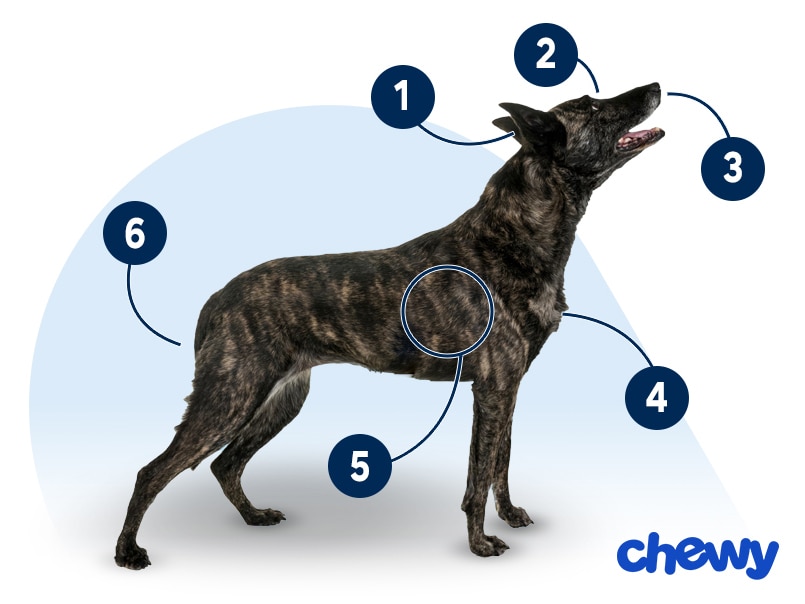
- Ears
Dutch Shepherd ears are large and pointed and stand upright on their wedge-shaped heads. A Dutch Shepherd puppy will have floppy ears, but they'll perk up over time as the muscles and cartilage develop.
- Eyes
Dutch Shepherd eyes are almond-shaped and typically brown or gold.
- Nose
They have long muzzles and black noses, giving them that signature shepherd look.
- Coat Length
A Dutch Shepherd's coat can be one of three types: short-hair (close fitting with a wooly undercoat), long-hair (medium in length and straight with a wooly undercoat) and rough-hair (dense, harsh with a wooly undercoat).
- Coat Color
Most Dutch Shepherd's colors are brindle—faintly tiger-striped—in shades of silver or gold.
- Tail
The Dutch Shepherd tail is long and hangs down with a slight curve when they're relaxed. It arcs upwards when they're active.
Dutch Shepherd Temperament
Just as you wouldn’t expect a Havanese to be a fierce watchdog, the Dutch Shepherd temperament isn’t all cuddles and snuggles—but that doesn’t mean they aren’t affectionate! These dogs are faithful pets and people-pleasers who are happiest right by your side, and while they’re active and highly motivated, they’re also happy to lounge by your feet when the day is done.
Dutch Shepherds live to work, but they’re good at knowing when it’s quittin’ time, too. When the job is done, they’ll settle down and recharge (and will let you do the same). Their intelligence, endurance and go-to-the-ends-of-the-earth-for-you loyalty make them both great pets and a top-notch working dog (aka a dog bred to perform a job). There’s a reason they’re a preferred breed for the police and military, and why you’ll often see them as service dogs. Dutch Shepherds can put blinders on to focus on the job at hand and won’t rest until it’s done—and you better believe it will be done right.
At the same time, they can switch gears in the blink of an eye. Their stoic, no-nonsense mugs belie the friendly, faithful and playful dog they are; these pups are great playmates for kids! They aren’t naturally aggressive, but they will keep strangers at bay. If they aren’t working, Dutchies are happiest when they are with their family, and they hate to be left out. When they’re alone for too long, they are sure to get bored and lonely, and undesirable behaviors (like chewing your shoes) may pop up. Keep a Dutch Shepherd busy, give them lots of affection, and you’ll be besties for life.
How to Care for a Dutch Shepherd
Good news! While the Dutch Shepherd’s high energy levels mean lots of walks and jogs (the next episode of your latest Netflix binge can wait, right?), caring for them is otherwise relatively easy. The amount of grooming you’ll have to do depends on their coat type—the shorter the coat, the easier the job.
Grooming
Training
Diet
Exercise
Environment
Dutch Shepherd Health
Dutch Shepherds have a lifespan of 11 to 14 years and are, in general, a healthy breed. Genetic health problems aren’t common with Dutch Shepherds. That said, there are a few health issues you’ll want to watch out for.
- Hip and Elbow Dysplasia: Hip and elbow dysplasia occurs when the ball of the hip or elbow joint doesn’t fit well in its socket, and it can be a painful and serious issue for larger breeds like the Dutch Shepherd. Because these conditions are hereditary, talk to your breeder about the health of your puppy’s parents. Encourage them to perform Penn Hip Improvement Program (PennHIP) or Orthopedic Foundation for Animals (OFA) diagnostic screenings to test for these diseases and put your mind at ease. If your dog does suffer from dysplasia, treatments range from weight management to physical therapy to surgery, depending on the severity.
- Thyroid Conditions: Parents of long-haired Dutch Shepherds should keep an eye out for thyroid problems. Hypothyroidism—when your dog’s metabolism slows because they’re not producing enough thyroid hormones—is usually detected after a dog starts to act sluggish, gain weight and even lose hair. Regular screenings, conducted by your vet, can help you make sure your dog is healthy, and detect and treat problems right away. Thyroid problems usually respond well to medication.
- Goniodysplasia: Dutch Shepherds with a rough-haired coat are more genetically susceptible to this form of glaucoma in which the fluid in the eye doesn’t drain properly. It’s important to treat this condition right away to prevent vision loss. Medications and surgery are both good options, depending on the severity of the case.
Dutch Shepherd History
Spoiler alert: As their name suggests, the Dutch Shepherd originated in the Netherlands. In the early 1880s, this breed was developed to work as a farm dog, herder and guard dog. Having a Dutch Shepherd on hand was like having a farm hand, a watchdog and a security detail all rolled into one. Over time, their intelligence and vigilant nature led to their use as police and military dogs, and they’ve held positions as search and rescue dogs, too. No wonder people sometimes describe Dutch Shepherds as a breed of workaholics.
It’s widely believed that Dutch Shepherds, German Shepherds and Belgian Shepherds, or Belgian Malinois, all descended from the same herding dogs, and you’ll notice they do look similar. Most Dutch Shepherds lived near Belgium—and stayed there for a long, long time without venturing outside the Netherlands’ borders. By the 1940s and 1950s, when modern farming reduced the need for herding sheep, the popularity of the Dutch Shepherd plummeted. During World War II, these dogs almost became extinct. While the breed survived, the Dutch Shepherd remains relatively rare even today. The Dutch Shepherd is not yet an American Kennel Club-recognized breed.
Looking to add a Dutch Shepherd to your family? The cost of a Dutch Shepherd averages around $1,200, but dogs with a superior pedigree can go for more than three times that much. Many pet parents will tell you it’s worth it, though, to have these wonderful dogs in their lives. And for that price, you’ll likely get a pup who’s been screened for health and temperament issues and may come with pedigree papers. The AKC website can help you find Dutch Shepherd puppies from a reputable breeder. Otherwise, you can consider contacting your local Dutch Shepherd rescue to adopt one of these dogs. Search Chewy’s database of adoptable dogs for Dutch Shepherds in your area.
FAQs
Do Dutch Shepherds shed?
Are Dutch Shepherds good family dogs?
What are the most common Dutch Shepherd mixes?
Expert input provided by Michelle MeGill, VSA-certified dog trainer and founder of Philadelphia-based Thunderdogz, pet behaviorist/former veterinarian Dr. Heather Rife, and Connecticut-based Jennifer Dematteo, owner of training and dog-walking service Jenny Walks the Block.
Breed characteristic ratings provided by veterinarian Dr. Sarah J. Wooten, DVM, CVJ, a veterinarian at Sheep Draw Veterinary Hospital in Greeley, Colorado; dog trainer and behavior consultant Irith Bloom, CPDT-KSA, CBCC-KA, CDBC, owner of The Sophisticated Dog, LLC, in Los Angeles; and certified animal behavior consultant Amy Shojai, CABC, in Sherman, Texas.
The health content was medically reviewed by Chewy vets.
